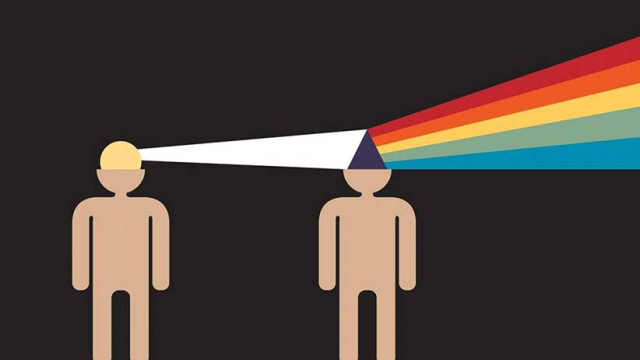One of the challenges I see so many coaches and solopreneurs struggle with is what they should charge for their services. Most do not know what they should charge. Many charge what they think they can get. Some charge whatever the next coach or practitioner charges. That is--"the going rate". Many charge what they would be willing to pay themselves. Most charge less than they are worth--while improving the lives of others dramatically.
But why? And what are the solutions to this travesty of value?
There are three primary reasons:
- Mistakingly thinking they are actually trading time for money, and/or that their services are a commodity. A thing to purchase
- Limiting beliefs; usually about themselves or the value they bring at their very core-and what they or their services are worth, what the prospective client would be willing to pay, or about money in general
- A lack of sales skill; they do not know how to create accurate yet inspiring value perceptions in the prospective client that make the fees irrelevant or appear minimal in comparison to what they are getting through the service.
How the heck do you determine or set your rate?
What are your services and/or your offering actually worth?
There are two answers to "how do you determine the rate?", or "what should I charge?":
- 20% more than you feel comfortable asking for
- Whatever the market can bear: whatever you can consistently get in return for your services or product
I have never met a solopreneur or some other type of small business person, who was in their first 5 years in business, who I have not advised to raise their rates. After understanding what they do, I examined their rates, and told every single one of them to raise them about 10% to 20%. They were all dramatically undervalued and undervaluing their offering.
You Might Be as Well
There is fear around raising rates for most people. They think they will see less clients, and as a result, have trouble with their financial obligations, they fear people will not pay that rate, and ultimately they either lack confidence in themselves and their offering, or they themselves are making the mistake of confused value perceptions; they do not see the true value for themselves.
So especially if you are just starting out or you are in the first few years of building your business, as a general rule of thumb, you should add 10% to 20%. Not so much that you are anxious about it, but enough to expand your beliefs about your value.
What can the market bare? In other words, charge whatever people are willing to pay. Ultimately, the consumers of your services set the rates. If your conversion rates of prospects to clients is too low [and I say it is too low if you can not reasonably count on them signing up], then your rate may need to be adjusted down. However, where you look first, is your ability to sell or enroll others in your services. Be careful to look there first. Anyone can get better at anything. Lowering your rates serves no one--least of all the client.
Clients who pay more are more serious about the work--and they get more accomplished in a shorter period of time. AND you show up at an ever grater level of excellence at a higher rate, multiplying this exponentially.
This is why I do not allow friends or family to subsidize a clients work for them with me.
They can borrow the money--they will take that seriously--but they may not be gifted any number of sessions. It is for the clients own good. And in the case of their borrowing it, I usually conduct my due diligence in making sure my work with them relieves more stress than it creates, so if there are underlying issues around money in their relationship, I may still decline that, not wanting to exacerbate them.
Additionally, if you told me you were unable to get the rate you wanted, I would ask a few questions
- Can't get it from whom? Which market? There is always someone somewhere who can afford you and will see the value in it. The higher the rates, the smaller the pool of prospective clients as a matter of financial and numerical fact, but you can get it from the right target market
- How confident and relaxed are you when they review the agreement and see the fees? Do you communicate worth and confidence? Or do you communicate an opening for a negotiation? Do you communicate uncertainty? Or--god forbid--do you ask them if it is too high as you project your own unresolved issues around money onto them? [The client has enough of their own limitations--they do not need you to add yours]
- Are you selling from vision and possibility and creating more accurate and inspiring value perceptions in the prospect--or are you trading time for money?
- How effective are you at inspiring, enrolling, and re-framing concerns?
- Where do you need to gain additional skill?
No matter how good you are, you can ALWAYS improve your sales and communication skills.
Those are the questions we explore first to be an Evolutionary Professional--to be constantly improving our efficacy at leveraging others beyond their limitations to have the life they dream of. There is always something you could have done to make a difference in the process. Examine that and only that. After that inquiry is exhausted, then you can indulge in examining how the client X,Y or Z. And it is, in fact, an egoic indulgence unless you are clarifying what a "qualified" prospect is.
You also need to look at what your intake process and your behavior is telling the client and yourself about what are you selling and offering? What are you offering? How clear are you when you communicate that? Do you communicate competence? Where do you come from or what platform do you stand on? What does your approach and your behavior presuppose as organizing principles. Not espoused beliefs or platitudes, but rather--integrated and aligned behavior.
One of the organizing principles I shared with my Apprentices and Evolutionary Professional clients and I will share with you now is this: You are not selling them on your service or product. It is a mistake to think so no only for your relationship to your own fees, the client's relationship to your fees--their investment--but also your level of fulfillment. If you try to sell them on how great your product or service is, you run the risk of some dynamics that will be set you up to less effective.
What you are selling them is a solution to a problem, or an access--a gateway--to the vision they have for themselves. Therefore:









